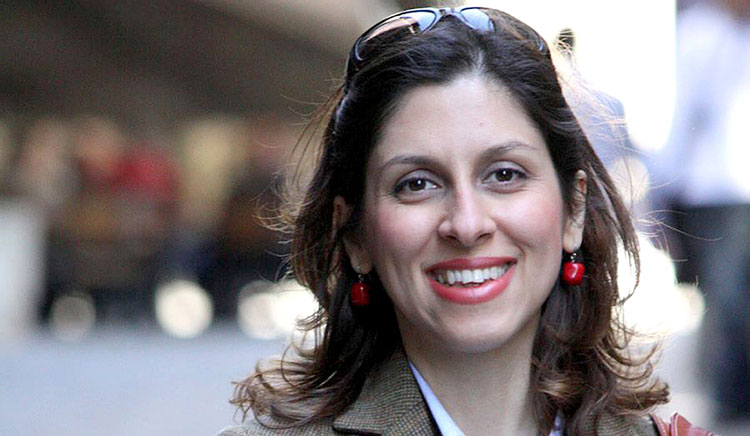The UK foreign secretary, Jeremy Hunt, chose International Women’s Day to announce he had decided exceptionally to grant “diplomatic protection” to Nazanin Zaghari-Ratcliffe, the British-Iranian wife and mother held in an Iranian prison on what are widely held in Britain to be trumped up spying charges.
“In terms of the overall context it creates, this hasn’t happened for an individual, we think, for more than 100 years, so it’s difficult to know exactly what the impact will be,” Hunt said.
He added: “It’s not a magic wand, it’s not going to solve things overnight but it does create a different legal and political context.” Nazanin, a charity worker with the Thomson Reuters Foundation, was arrested in April 2016 at Tehran airport as she was returning home to London with her then 22-month-old daughter, Gabriella, following a family visit.
She was subsequently sentenced to five years imprisonment, despite strenuously denying the charges against her, while Gabriella remains in the country cared for by family.
Her husband, Richard Ratcliffe, has said his wife was told by judges in court that her case related to an unpaid £400 million debt the UK owes Iran in relation to the purchase of Chieftain tanks in the 1970s.
In January, Nazanin went on hunger strike for three days saying the Iranian prison authorities had refused her treatment for a series of medical conditions including lumps in her breasts, severe neck pain, and numbness in her arms and legs.
Hunt told BBC Radio 4 on Thursday that diplomatic protection “legally elevates Nazanin’s issue to a state-to-state issue”.
“It sends a very strong message to Iran, ‘You are a great civilisation, you may have disagreements with the UK, but at the heart of this is an innocent woman, vulnerable, unwell and scared and she has a four-year-old daughter. She should not be paying the price for whatever disagreements you have with the UK.’”
The foreign secretary, who has brought a more measured style to the job after his more mercurial predecessor, Boris Johnson, said the UK wants to solve the case with Iran “in an amicable way” and believes diplomatic protection may make it easier to gain consular access, which has so far been denied to the British ambassador in Tehran.
The Iranian government does not acknowledge dual nationality — which Nazanin possesses (unlike Shamima Begum, the Bangladeshi Islamic State bride who has been stripped of her British nationality by the home secretary, Sajid Javid, making her effectively stateless).
Repeated calls for her release by the British government — including a direct appeal by Theresa May to Iranian President Hassan Rouhani during last year’s UN general assembly in New York — have failed to produce results.
Hunt said: “We do want the world to know that the UK will not stand by when our citizens are unjustly treated and we want states to understand that if they use individuals as pawns, then people are not just going to let it go, there is going to be a price to be paid. We hope the Iranians will react constructively to this and understand we are not going to drop this.”
Meanwhile, her husband told the same programme that he welcomed the foreign office decision to accord diplomatic protection to his wife: “It changes the status for Nazanin’s case. Now it’s also the British government’s case and all the injustices that happen to Nazanin are effectively injustices against the British government.”
“I last spoke to her on Wednesday and obviously I knew that the foreign secretary had asked, ‘Did we still want diplomatic protection?’, so she was a bit more upbeat than she’d been before.
“I’m sure this will give her a big lift.”











